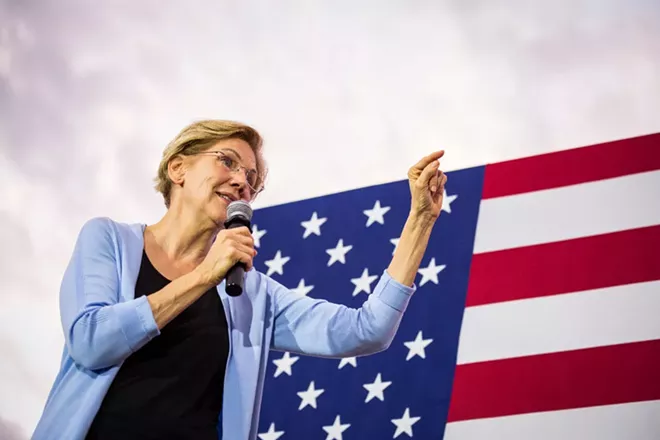By Astead W. Herndon and Shane Goldmacher
BOSTON — Sen. Elizabeth Warren of Massachusetts plans to drop out of the presidential race on Thursday and will inform her staff of her plans later this morning, according to a person close to her, ending a run defined by an avalanche of policy plans that aimed to pull the Democratic Party to the left and appealed to enough voters to make her briefly a front-runner last fall, but that proved unable to translate excitement from elite progressives into backing from the party’s more working-class and diverse base.
Though her support had eroded by Super Tuesday, in her final weeks as a candidate she effectively drove the centrist billionaire, former New York Mayor Michael Bloomberg, out of the race with debate performances that flashed her evident skills and political potential.
She entered the race railing against the corrosive power of big money, and one long-term consequence of her campaign is that Warren demonstrated that someone other than Sen. Bernie Sanders, and his intensely loyal small-dollar donors, could fund a credible presidential campaign without holding fundraisers.
Her potential endorsement is highly sought after in the race and both Sanders and former Vice President Joe Biden have spoken with Warren since Super Tuesday, when the end of her campaign appeared imminent.
Warren’s political demise was a death by a thousand cuts, not a dramatic implosion but a steady decline. Last October, according to most national polls, Warren was the national pacesetter in the Democratic field. By December, she had fallen to the edge of the top tier, wounded by a presidential debate in November where her opponents relentlessly attacked her. In the first four early voting states, Warren slid from third place in Iowa to fourth in New Hampshire and Nevada to fifth in South Carolina. By Super Tuesday, her campaign was effectively over — with the final blow of a third-place finish in the primary of her home state, Massachusetts.
The news clarifies that a Democratic field that began with a record number of female candidates has now become a contest between Biden, 77, and Sanders, 78.
Sanders, who had a more muted showing on Super Tuesday than polls had predicted. The Sanders campaign will now aim to attract enough of Warren’s ideologically progressive supporters to put him over the top in a closely contested primary.















